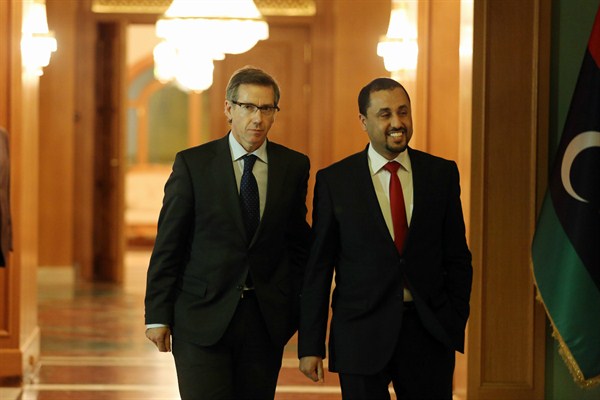United Nations-led talks to resolve Libya’s unrest have been undermined by revelations of extensive links between the outgoing U.N. mediator, Bernardino Leon, and the United Arab Emirates, one of the regional powers that openly backs one side of the civil war. But not everything is lost, provided Leon’s successor, the veteran German and U.N. diplomat Martin Kobler, can overcome three outstanding obstacles.
Leon was trying to broker a country-wide cease-fire and a national unity deal between competing factions that have fought each other since the summer of 2014 and split Libya into two rival governments: the internationally recognized one in Tobruk and the predominantly Islamist “national salvation” government in Tripoli. Rival regional powers have supported the two sides. Egypt and the UAE have gone as far as conducting airstrikes in support of Gen. Khalifa Haftar’s forces in Tobruk, while Turkey and Qatar have been accused of arming the Islamist militias controlling Tripoli.
Leon apparently came very close to accomplishing his mission, announcing an interim Cabinet on Oct. 8. But neither the House of Representatives in Tobruk nor the General National Congress in Tripoli voted to approve it. Nonetheless, this was enough to convince the international community that an agreement was around the corner. Foreign governments and international institutions made plans to support and work with a unity government, and even discussed the creation of a peacekeeping force to try and guarantee its stability.

